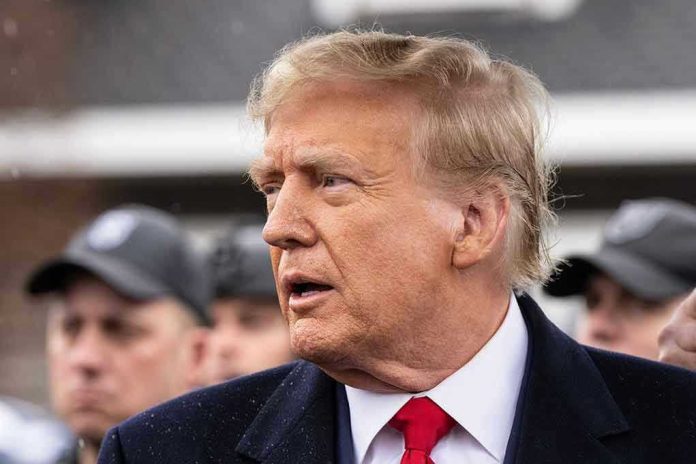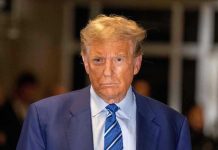
When a billionaire governor and a president exchange accusations of criminality and dementia in public, American political discourse has officially entered uncharted territory.
Story Snapshot
- Trump declares Illinois Governor JB Pritzker belongs “in jail” over immigration enforcement policies
- Pritzker fires back, accusing Trump of suffering from dementia and authoritarian tendencies
- The feud centers on sanctuary city policies and federal immigration enforcement in Chicago
- Both politicians escalate personal attacks rather than focusing on policy solutions
The Jail Comment That Started It All
Donald Trump didn’t mince words when discussing Illinois Governor JB Pritzker’s stance on immigration enforcement. The president declared that Pritzker belongs behind bars for his refusal to cooperate with federal immigration authorities in Chicago. This inflammatory statement emerged from Trump’s frustration with sanctuary city policies that limit local cooperation with Immigration and Customs Enforcement operations.
Trump’s accusation specifically targets Pritzker’s protection of Chicago’s sanctuary status, which prevents local law enforcement from detaining individuals solely based on immigration violations. Trump reportedly views this as obstruction of federal law enforcement, warranting criminal prosecution. Such extreme rhetoric represents a significant escalation in the ongoing battle between federal immigration policy and state-level resistance.
Pritzker’s Mental Health Counterattack
Governor Pritzker refused to let Trump’s jail threat go unanswered, launching his own personal assault by questioning the president’s cognitive abilities. The Illinois governor publicly suggested Trump suffers from dementia, framing his comments as evidence of mental decline rather than coherent policy positions. This represents a calculated political strategy to undermine Trump’s credibility while positioning himself as a defender of rational governance.
The dementia accusation reflects a broader Democratic talking point about Trump’s fitness for office, but coming from a sitting governor, it carries additional weight and legitimacy. Pritzker’s willingness to engage in such personal attacks demonstrates the deep animosity between Trump and Democratic state leaders who view themselves as bulwarks against what they consider authoritarian overreach.
The Immigration Enforcement Battleground
Behind the personal insults lies a substantive disagreement about immigration enforcement and federalism. Trump’s position reflects traditional conservative views that local governments must cooperate with federal immigration authorities, regardless of political preferences. Sanctuary policies, in this view, constitute illegal interference with federal law enforcement and endanger public safety by protecting potentially dangerous individuals from deportation.
Pritzker’s defense of sanctuary policies aligns with progressive arguments about protecting immigrant communities and preventing local law enforcement from becoming federal immigration agents. The governor argues that cooperation with ICE undermines trust between police and immigrant communities, making everyone less safe. This philosophical divide reflects deeper disagreements about the proper balance between federal authority and state autonomy in immigration matters.
Political Theater or Genuine Threat
The escalating rhetoric between Trump and Pritzker raises questions about whether these exchanges represent serious policy debates or mere political theater designed to energize respective bases. Trump’s jail comment may reflect genuine frustration with sanctuary policies, but it also serves as red meat for supporters who view immigration as an existential threat requiring aggressive federal action.
Similarly, Pritzker’s dementia accusation functions both as a personal attack and a broader argument about Trump’s unfitness for future office. These personal insults distract from substantive policy discussions while reinforcing existing political divisions. The result is a political discourse increasingly characterized by personal destruction rather than constructive debate about complex issues like immigration enforcement and federalism.
Sources:
Trump says Illinois governor and Chicago mayor



